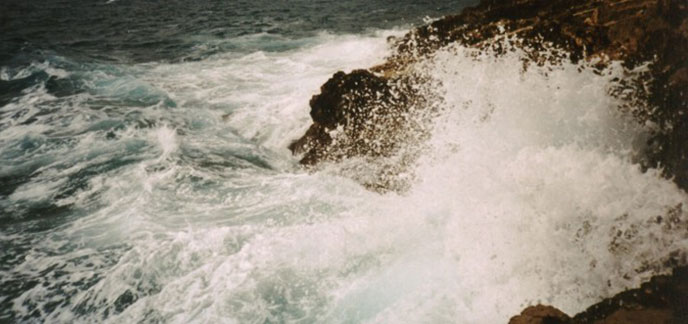“Nobody can advise you and help you, nobody,” Rilke wrote in his response to a request for advice and feedback from the nineteen-year-old aspiring poet Franz Kappus. “I know no advice for you save this: to go into yourself and test the deeps.”
Rilke’s first letter to Kappus in Letters to a Young Poet is one of the most polite and ineffective dismissals you’ll read. While it seems that he’s trying to dispatch with his young admirer, it would be the first of ten letters that he sent Kappus over a six-year period. A century has passed since their correspondence ended, but the book remains a staple in high schools and colleges, a primer on the questions that artists confront throughout their lives.
In the spirit of Rilke’s attempts (or skillful dodges) at giving advice, we asked FSG’s poets to tackle a question—or invent a new one—that lies within Letters to a Young Poet. Rilke’s letters have proven to be remarkably durable, but if poetry has changed at all, we need new answers to our questions, and new questions to answer.
Five FSG poets—Ange Mlinko, Rowan Ricardo Phillips, Michael Hofmann, Carl Phillips, and Karen Solie—heeded the call, and throughout April we will be sharing their advice to the Franz Kappuses of today. First among them is Ange Mlinko’s “The Use of Beautiful Places.”
Poets make pretty things, whatever else they may do. Poems can’t be other than exquisite, profiled against an indulgence of white space; and if long and long-lined, then full of sprung drawers and cupboards, a wonder cabinet. As a corollary to making and loving pretty things, poets want to live in pretty places. As a corollary to living in pretty places, poets must have money, because everyone gravitates to pretty places, and it drives up the rent. There the circle of logic is broken, for poetry isn’t a money-making enterprise. “Rilke larded the pages of his correspondence with the names of aristocrats who owned—just imagine—a very nice collection of old livres d’heures, and landed estates, and a castle in the Ukraine . . . [The letters] were addressed to countesses and were written in palaces, or at the very least on paper headed Villa des Brillants, Meudon-Val Fleury (Seine et Oise).” That’s Gottfried Benn (day job: physician) writing with irony of Rilke’s talent for patronage. We all like luxe. When my day job took me to Houston, I told myself fairy tales about poets who move to backwaters beginning with the letter H (Hartford, Hull), and writers who barely left their rooms at all. I knew enough mediocre poets who ran to Paris or Rome every chance they had. When a friend suggested that for Henry James, going to Europe as an American was a voyage to the Underworld, I thought then that perhaps the scrublands of the Texas coastal prairie, while also a kind of hell, would prove more useful. Because as ugly as this landscape was, I could interpret it.
I remember a jewel of a village . . . I was in a jeep driven by a professor whose research, interviewing Morrocan veterans of the French Army, took him all over the Middle Atlas. We had gone from mountain spring to mountain spring, and now we were passing through a village isolated deep in the cedar forests, built, it seemed, on impossible angles and interlocking primary colors. Had you told me we had tunneled through to an Incan or Mongolian or Brothers Grimm hamlet, I would not have been fazed; the tilt of the roofs went one way, the streets another; the sky turned ninety degrees, and the minarets looked like confectionary.
At the time, the poet in me wanted to “capture” this scene; the only thing possible to capture, it seems to me now, was my own sense of being completely out of my element, incapable even of reading the road signs. Perhaps I used to put too much faith in the incomprehensible, because my childhood was spent at the knee of relatives who told stories in languages I could only partly decipher. Beauty, wonder, the unknown: it’s a start, but the poet’s task isn’t to gush. If it were, we could be calligraphers of one credo, God is Great and So Is His Creation and inscribe it on palace walls and ceilings, leading forward from rooms that give out onto gardens and prospects. That would not be articulate. Poetry is articulation: conversation and history and the fate of persons. Learning another language is a thousand times more useful to poetry than a room with a view. My great realization, living in Beirut in from 2009 to 2010, was that the beauty of the Mediterranean resided less in the blue outside my window than in the centuries of literature that sprang from it. So I wrote a book, not really about living on the Mediterranean, but about reading on it. I felt I had finally been let in on a secret. I would no longer think of a poem as an aesthetic object, but as a fragment of an abiding conversation.
Ange Mlinko was born in Philadelphia in 1969. Educated at St. John’s College and Brown University, she has spent most of her adult life in New York, and has also lived in Ifrane, Morocco, and Beirut, Lebanon. Mlinko’s previous books include Matinées, Starred Wire, and Shoulder Season. She has received the Poetry Foundation’s Randall Jarrell Award in Criticism and a Guggenheim fellowship and currently teaches in the Creative Writing Program at the University of Florida, Gainesville.
YOU MIGHT ALSO LIKE:
Seamus Heaney’s Classics Homework
Dominic Smith on Forgeries and Figments
The Microcosm: Poetry and Humanism
